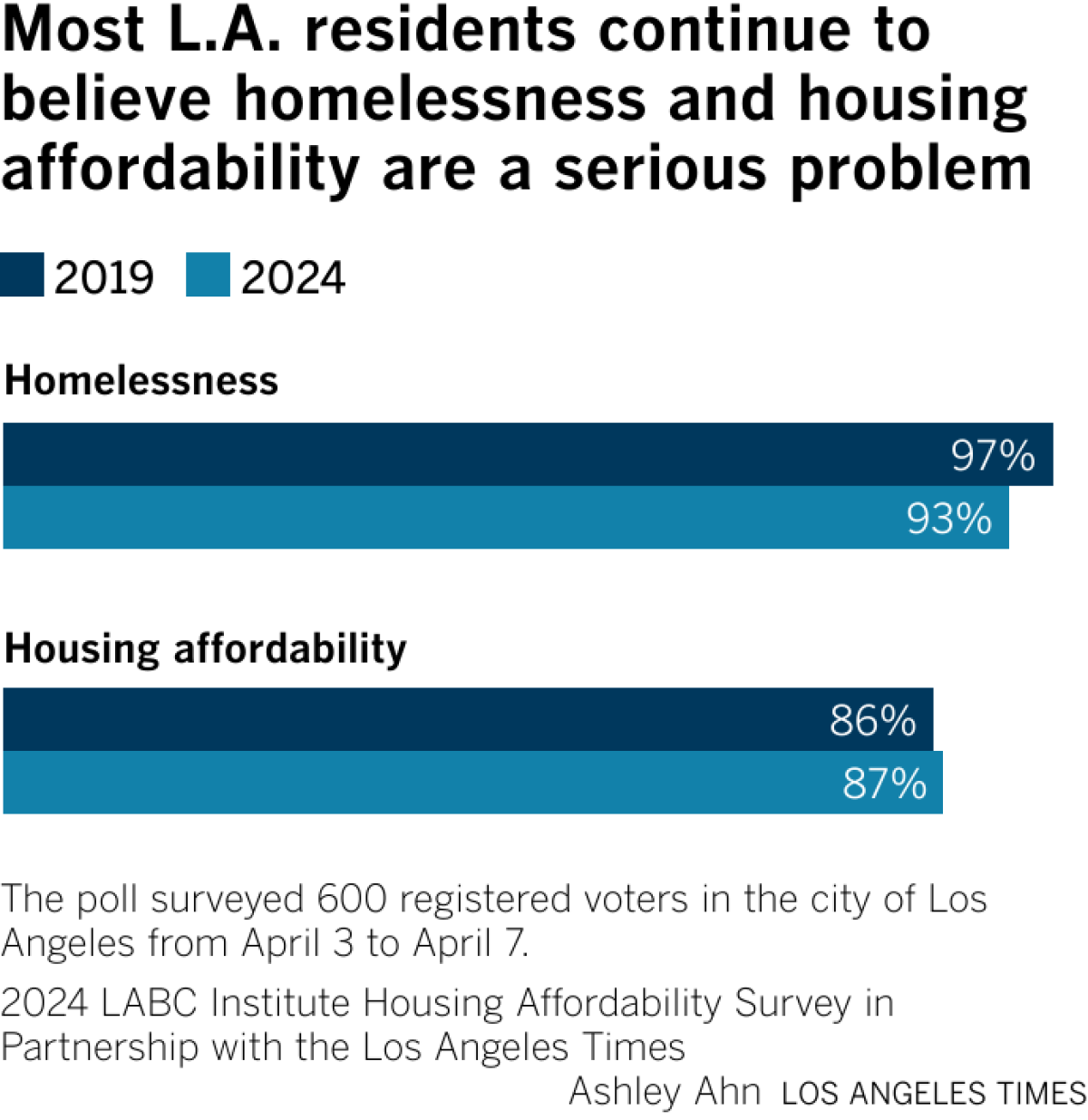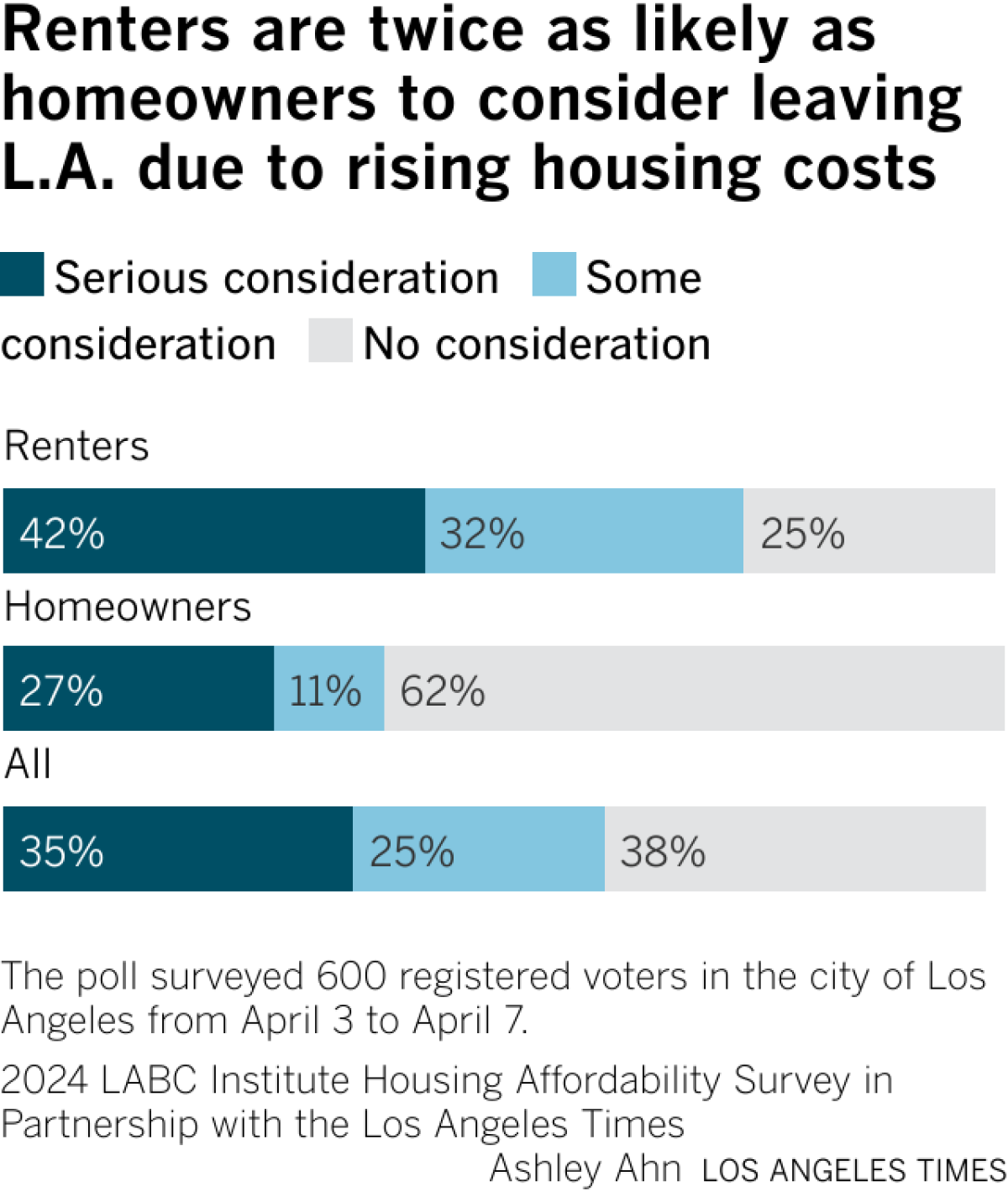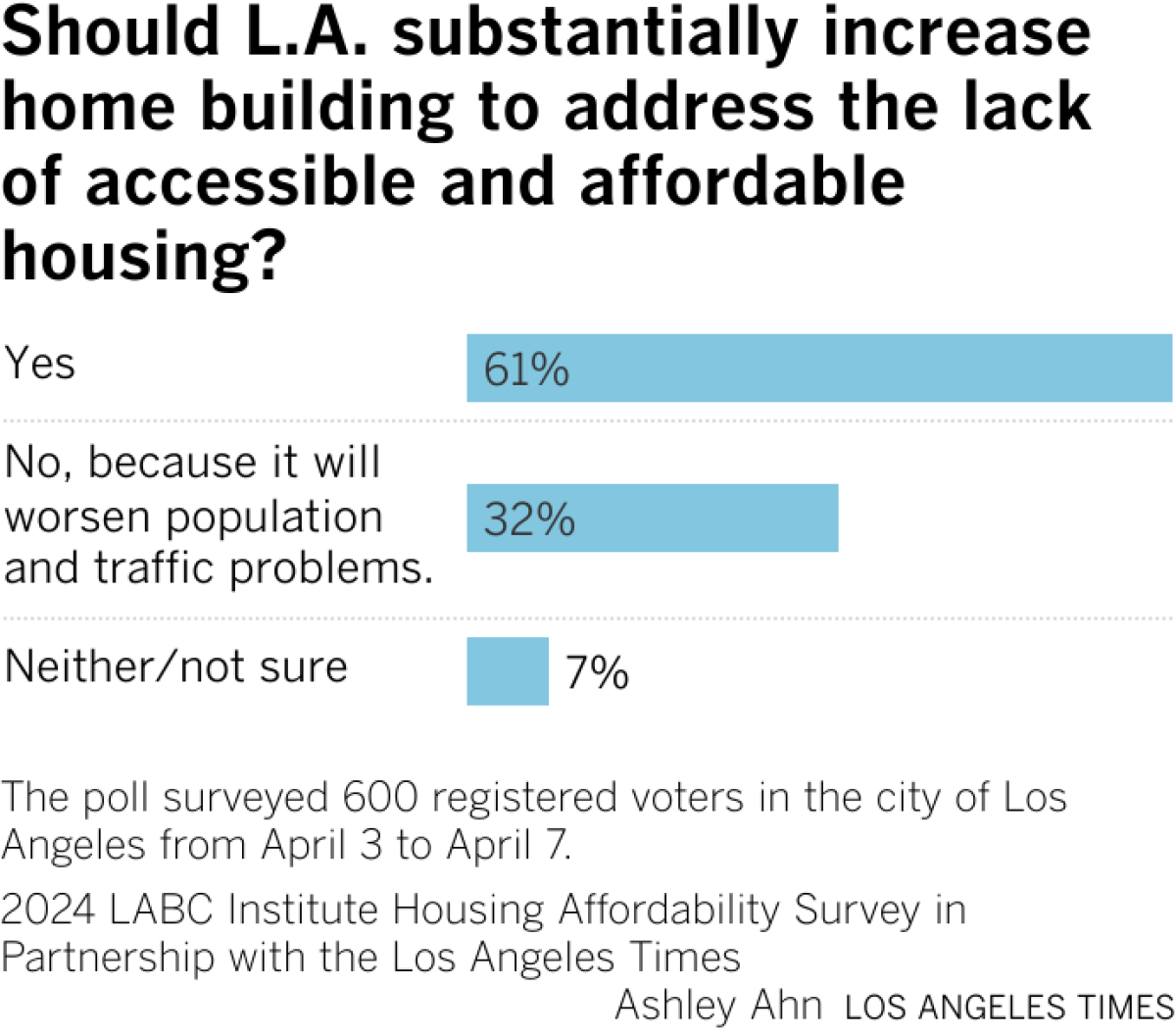Good morning. It’s Thursday, May 9. Here’s what you need to know to start your day.
Renters and young adults are more frustrated with Los Angeles’ housing crisis than ever
About three-quarters of renters and people under 35 have considered leaving L.A. despite wanting to buy a home here, a new poll has found.
The reason? High housing costs.
The Los Angeles Business Council Institute in partnership with the Los Angeles Times surveyed 600 registered voters in the city of L.A. between April 3-7.
A majority of them, especially renters and those under 35, expressed stark anxiety about housing and homeownership, saying they personally had difficulty affording housing in the city.
My colleague Liam Dillion reported on the poll. Let’s take a look at some of the major findings.

87% of voters believe housing affordability is a serious crisis in L.A., according to the poll. 93% of poll respondents believe homelessness is a serious problem, a 4 percentage point drop from the last LABC-Times survey in 2019.
Angelenos are forced to find additional sources of income to afford housing
More than 40% of respondents said they found additional sources of income to afford housing in the last five years. Nearly 20% said they added new roommates or renters to pay bills or had fallen behind their rent or mortgage payments. Another 6% said they were homeless or lived in vehicles in that period.

74% of renters have considered leaving L.A. due to rising housing costs, while only 33% of homeowners have.
60% of poll respondents overall said they debated moving from L.A. because of high housing costs, with 35% saying they “seriously” considered doing so. This percentage increased by 14 points for renters, and dropped by 24 points for homeowners.
Angelenos think they are working hard but still find themselves failing to keep pace with rising costs, Aileen Cardona-Arroyo, a senior vice president at Hart Research, the polling firm that administered the survey, told Dillon.
Renters tend to spend more of their income on housing every month than owners
In recent years, both average rents for new listings and home values have skyrocketed in L.A., according to data from Zillow.
More than half of renters spend 30% or more of their income on rent, according to a UCLA analysis. But only 3 in 10 homeowners spend that much.

More than half of voters agreed that the city should substantially increase homebuilding to address its housing crisis. Renters and those under 35 were more likely to support new construction than homeowners and those over 65.
Most people agree L.A. needs more housing. They don’t agree on where, how much, or if it will help.
At least 80% of voters favored the construction of income-restricted affordable housing, housing for veterans, public service workers, low-income seniors and low-income families with children. More than 60% of voters also supported building long-term housing for homeless residents.
But only 42% of homeowners agreed that widespread construction would alleviate L.A.’s housing problem.
32% of voters opposed widespread construction, and said they feared it would increase the city’s population and worsen traffic. 49% also said that new construction in their neighborhoods would increase housing costs and push residents out.
Some academic research has shown that new homebuilding decreases rents or slows their growth in a region as a whole. But, there isn’t much consensus on how new construction affects an individual neighborhood.
More from the poll:
Today’s top stories

Enikia Ford Morthel, superintendent of Berkeley Unified School District, was called before a Republican-led subcommittee of the House Committee on Education and the Workforce about allegations of pervasive antisemitism in K-12 classrooms. (Anna Moneymaker / Getty Images)
Antisemitism hearings
Shohei Ohtani scandal
Climate and environment

Sea lions are seen on rafts along Pier 39, Thursday, May 2, 2024, in San Francisco. (AP Photo/Godofredo A. Vásquez) (Godofredo A. Vásquez / Associated Press)
Campus protests
2024 election
Reservoirs and drought

The difference in water levels between a low Lake Oroville and where it is now. (Before: Ken James, Department of Water Resources. After: Xavier Mascareñas, Department of Water Resources.)
More big stories
No comments:
Post a Comment